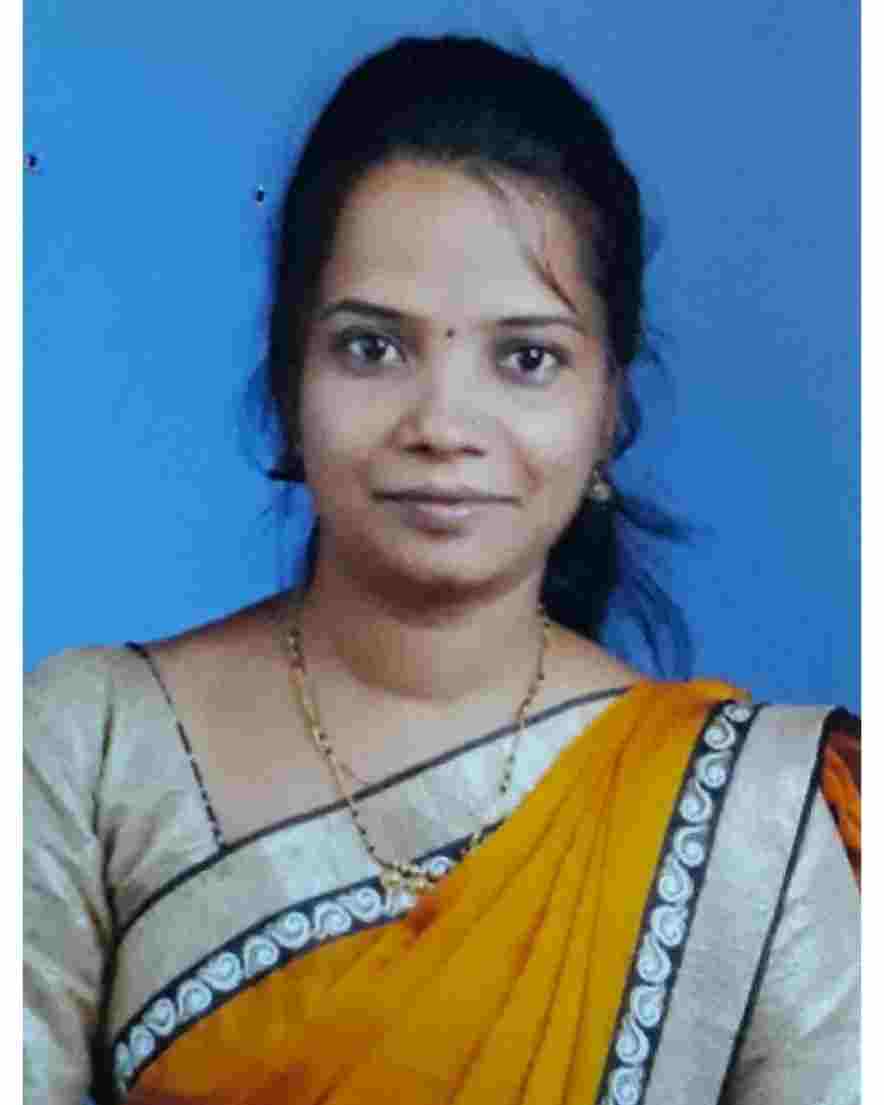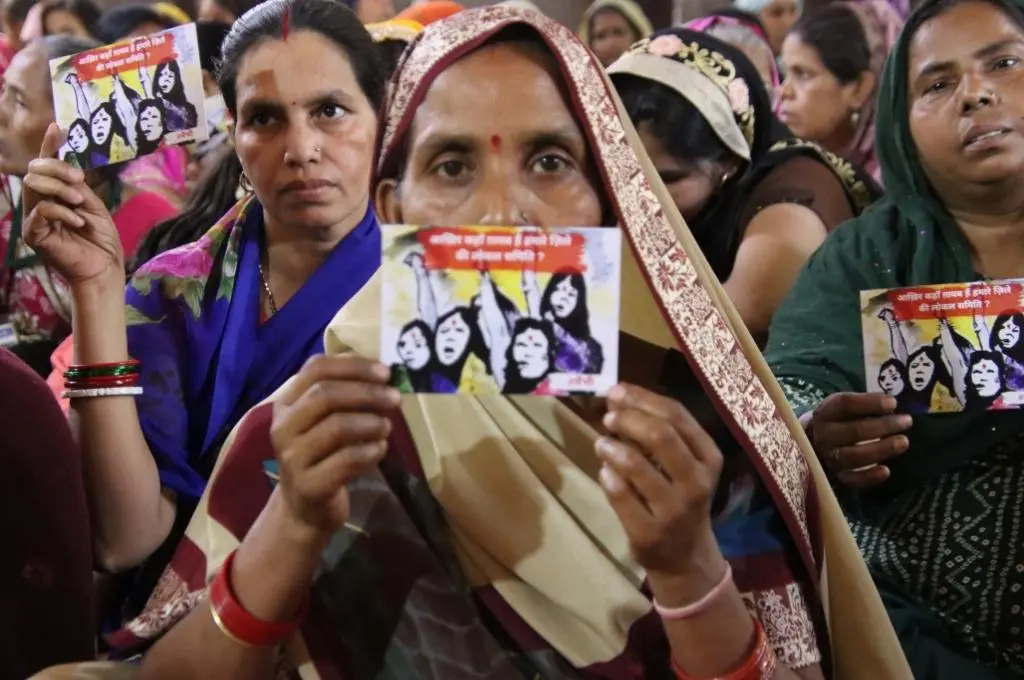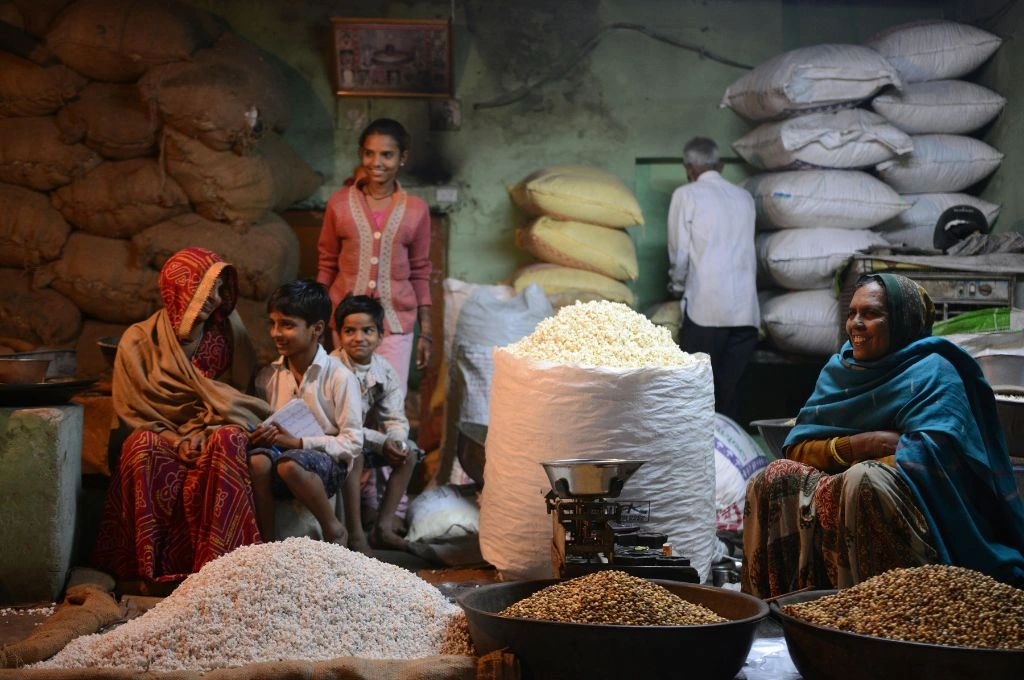I am a 39-year-old woman from Belgaum in North Karnataka, and I work in Bangalore as an enumerator for Good Business Lab (GBL). My role involves working in the field and conducting surveys to help generate good data for research.
I’ve worked at GBL for the last four years, but my career started nearly 18 years ago, after my daughter was born. At the age of 17, I was married off to an older man who was very controlling and patriarchal; he expected me to sit at home and manage the house, which I didn’t like at all. I didn’t want my daughter’s life to go the same way; I wanted her to study in an English-medium school and have a good future, which is why I decided to start working. Initially I worked as a teacher in a local school, but the salary I received there was too low for me to be able to educate my daughter. So, I took on a job as an enumerator.
I really enjoyed going out and working, and I made a lot of friends on the job. But soon I began to face resistance from my family, who wanted me to stop working and stay at home with my child. Although I gave into that pressure and left my job, I was not satisfied as I knew I needed to have an income to secure my daughter’s future. So, I learnt some basic tailoring and cosmetology, and began to operate a stitching and beauty parlour business from my home itself. I did this for six years, but my daughter was in standard 7 by then, and I needed more money to educate her. So, I contacted my friends from my time as an enumerator, and they told me about opportunities in the field. This time I decided that I would go even if it was against my family’s wishes, because I knew it was the only way to secure my daughter’s future. I left her with my parents in Belgaum and moved to Bangalore. I have been working here as an enumerator ever since, with a number of different institutions.
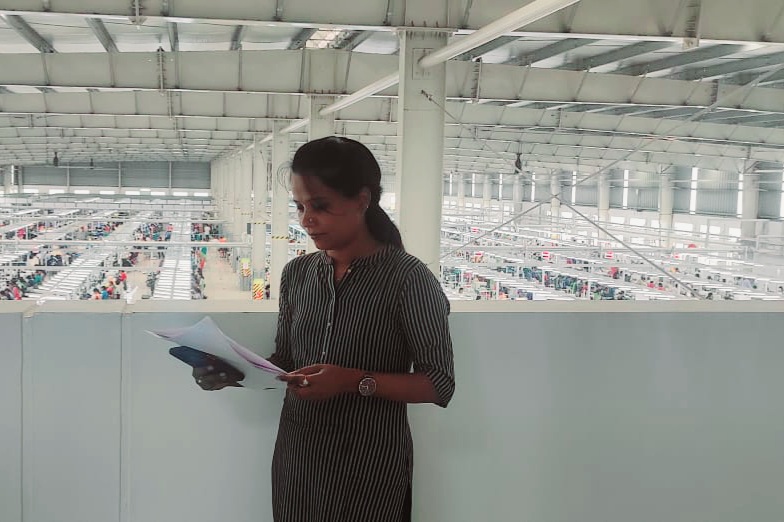
6.00 AM: I wake up early so that I can eat breakfast and leave for work, which takes me more than an hour to get to due to the traffic in Bangalore. Back when I had to regularly visit the field to conduct surveys, I would often wake up by 4 am and embark on extremely long bus journeys to districts across the state. If we found some food on the way, we would eat; otherwise we would often go out into the field on an empty stomach and hope to eventually find some food.
During my early years as an enumerator, the start of a new project always made me anxious. I would worry about what the work environment and my team would be like. As women, we anyway find it difficult to leave the house without permission. We would also worry about whether there would be men on our survey team, as we’ve sometimes had problems with them in the past.
The projects could also span several days or weeks, and often there was no clarity regarding where I would stay or where I would have to go. I remember my first field visit to Bijapur district, where my colleague and I were stranded at the bus stop till 10 pm because we did not have a place to stay for the night. As two non-local women, we were too scared to seek out lodging. Fortunately, we managed to contact a woman we knew who lived in Bijapur, and we could stay at her place for one night and then go out into the field the next day. Situations like this were not uncommon.
9:30 AM: I reach the unit near Bellandur where I will be working today. With GBL, I work on different projects to survey garment factory workers. There are nearly 20 factories we work with across Bangalore, and so the unit I report to can change based on the project I am engaged in.
Recently I got promoted from enumerator to field analyst, so I work on two to three projects at a time, and each one has its own requirements and timings. Today I’m working on a project that studies the eye health of workers in the morning; for this we have to take measurements of the distance at which the workers hold the needle while working. Later in the evening I will get busy with a project studying loneliness and social isolation among migrant garment workers, which requires us to go to the women workers’ hostels and interview the residents there.
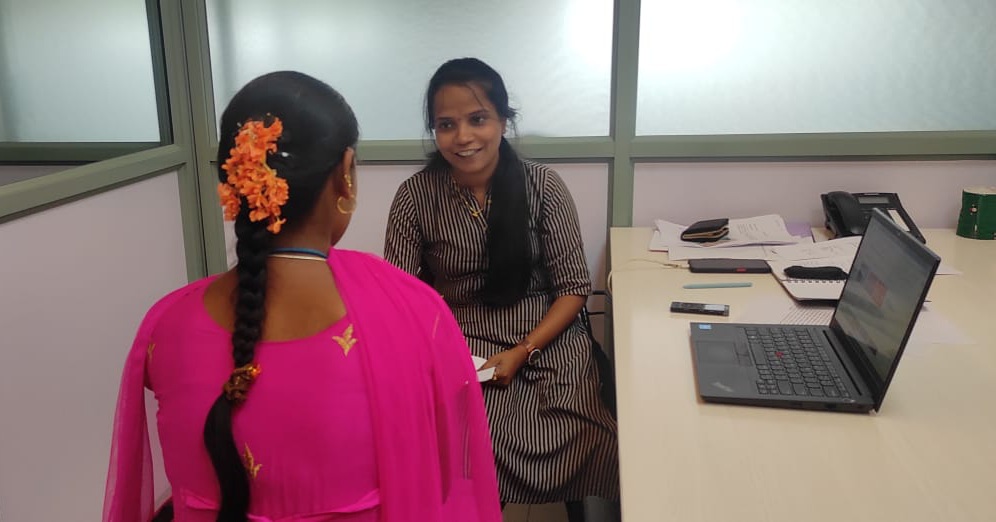
12:00 PM: As part of my new role, I also support the handling and training of enumerators. I’ve realised that the training enumerators receive before a project usually focuses on what questions need to be asked, in what order they should be asked, and how they should be asked, but this prepares us for only 50 percent of the job—the rest requires communication and interpersonal skills that we ourselves must develop. Only when we communicate clearly and get to know people will they be able to open up and provide us with the personal information we often need. We must also learn to be perceptive enough to discern whether the information they are conveying is true or not. These skills take time to develop.
2:00 PM: Lunch is always provided when I’m at the unit. However, during my early years as an enumerator in the field, I would typically have to arrange lunch for myself. Some field sites were so remote that we could not find food or water even if we had money to pay.
After lunch, I head home for a short break since I’ll be working again in the evening.
5:00 PM: I leave home and go to the hostel where we have to do our data collection for the day. I coordinate with the warden, asking how many girls are present, and on the basis of that I divide them among the enumerators we have so that each one has to cover a set number of rooms. By 8.30 pm we wrap up our work and head home.
I’m almost 40, so I wonder if I will continue to get work, since I might be considered too old to go out into the field. My daughter reassures me that I should not worry.
Conducting surveys all day long can be taxing, and the lockdown presented its own unique challenges for our work. I was fortunate enough to be part of a project centred around COVID-19, which meant that I had consistent work even when the pandemic was at its peak. However, since enumerators could not visit the field, many of them were unemployed during this period. It also became very difficult to survey women over the phone, since first we would need to obtain their husband’s permission to speak to them. In some instances, we got their permission in the morning, but then they would change their mind later. In others, we got yelled at for calling them. This made it very difficult for us to do our job.
9:30 PM: Soon after I reach home, I make my dinner. Then I call home to talk to my mother and daughter. I often worry about my future since I used up all my money for my daughter’s education and didn’t save a lot. I’m almost 40, so I wonder if I will continue to get work, since I might be considered too old to go out into the field. My daughter reassures me that I should not worry. She tells me, “Why are you taking tension? Leave it. Let me study, and once I am settled, we will both live comfortably.” I want to see her do well for herself. It is my dream for her to be a doctor, and I work hard to support her. I think it’s important to support young girls who want to go out and work. I often tell her that once she settles down, she must take me travelling. I really want to go to the Vaishno Devi temple in Jammu and Kashmir, since my daughter is named after the goddess Vaishnavi.
11:00 PM: Before going to bed, I send reports to my managers regarding the work that happened during the day, especially on the evening projects. Although this line of work has its challenges, I enjoy doing it because I get to meet new people every day, talk to them, and listen to them. Bonding with them through these conversations makes me happy.
My parents initially gave me a lot of grief for working. After my husband passed away, they were worried about what others would say as they raised my daughter while I worked in another city. But I was stubborn and committed to securing a better life for my daughter, without having to rely on anyone for money. After witnessing my hard work and professional growth, they now support me. I struggle to reconcile with their support, as it was absent when I needed it the most. I focus on my daughter, for whom I have great hopes.
As told to IDR.
—


